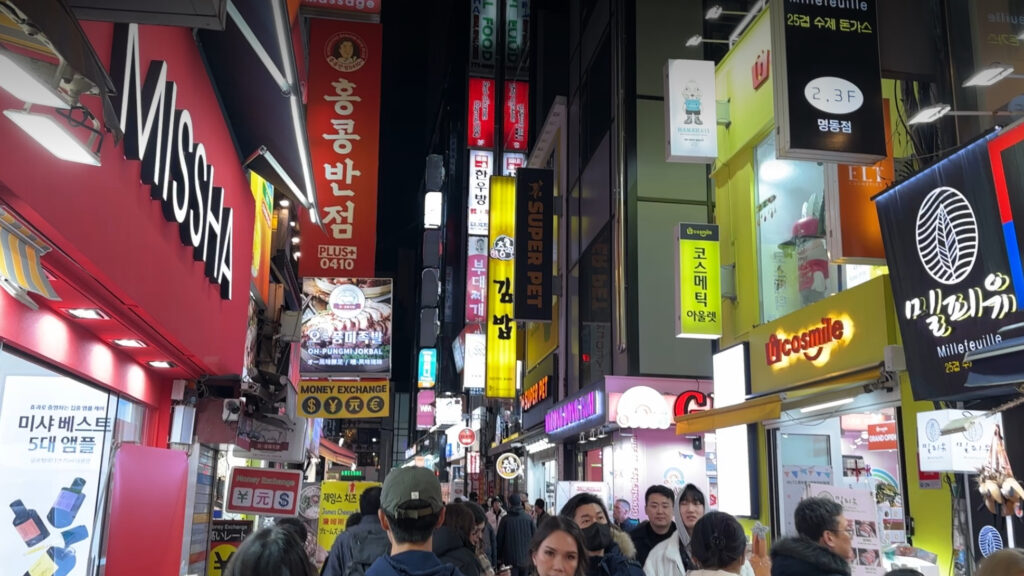Getting accustomed to life in South Korea while studying abroad has been quite an adventure. Not only do Korea and the United States have vastly different cultures, but adapting to a country where English isn’t the primary language comes with its own set of challenges. Thankfully, I took two introductory Korean courses at the University of Alabama before my time abroad. Those classes were a lifesaver, giving me a solid foundation in Hangul, the Korean alphabet, and some basic vocabulary. Had I not taken these courses, I believe I would have had a vastly different experience thus far.
Firstly, the language situation in South Korea is a bit of a mixed bag. Since they use a different alphabet, it’s almost like an additional step when making translations. Furthermore, Korean has many different forms of words, so I am often worried about saying words correctly and honorably. But being in Seoul, where my host university, Yonsei University, is situated, has its perks. Many things are conveniently written in both Korean and English. Plus, the locals seem to enjoy it when a foreigner tries their hand at Korean. It might feel nerve-wracking at times, but the effort is appreciated, even if it draws a few laughs. Additionally, you can always rely on a translation app for more specific questions or interactions.
In my day-to-day life, I don’t find myself speaking Korean all that much. Most of my friends speak English fluently, and my classes are primarily conducted in English too. But when it comes to ordering food, a few Korean phrases do come in handy. Many large food chains have touch-screen systems with different language options, but for the smaller joints, a little pointing and saying “one of this and two of that, please” usually does the trick. Lastly, South Korea does not have partnerships with many foreign data and map companies like Google and Apple. Instead, they have two major companies, Naver and Kakao. Downloading a couple of these before or at the start of your trip is a must, and I would recommend Papago (translation), KakaoTalk (messaging), and NaverMap (transportation).
Overall, brushing up on a bit of the local language before your adventure isn’t mandatory, but will certainly make your life easier. Duolingo and other platforms are great for picking up the basics, but familiarizing yourself with everyday words, phrases, and especially the alphabet can make a world of difference.
Got any questions or just want to chat? Feel free to shoot me an email at ommaccarrick@crimson.ua.edu. Happy travels!

